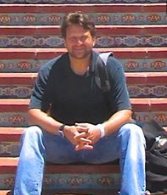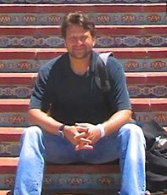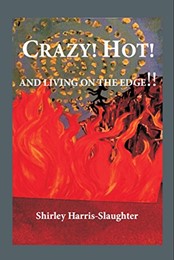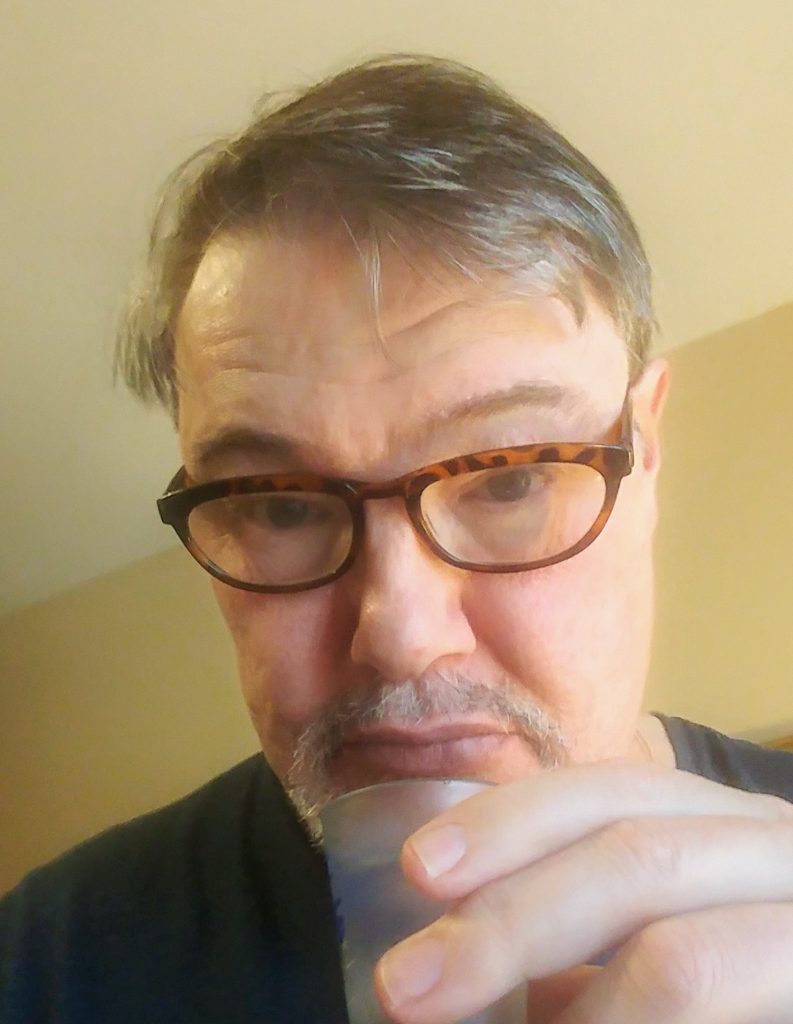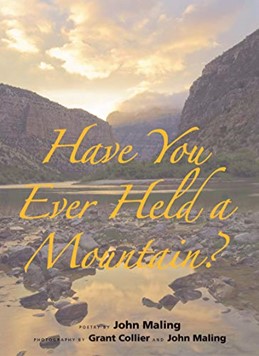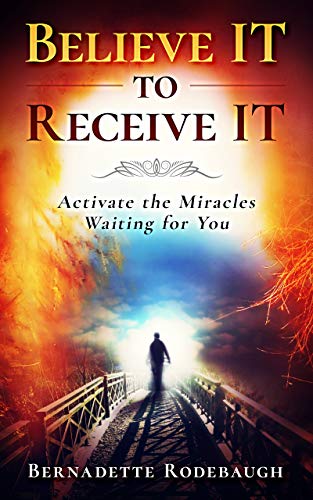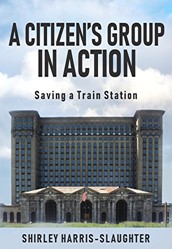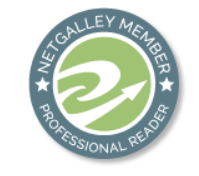Journalists have a different method for sharing the words. They tend to fact check, verify, and speak from a personal perspective. That is not to say their own frame of reference will not shape the outcome of the story—like all of us they are human. Today though I have the chance to share some time with Todd Bensman. His extensive qualifications include an M.A. in Security Studies from the Naval Postgraduate School, Center for Homeland Defense and Security (2015, Outstanding Thesis designee, an M.A. in Journalism from the University of Missouri School of Journalism, and an undergraduate degree in Journalism from Northern Arizona University. His experience includes on assignment in 25 countries over his career, and these days he gets called to investigate the southern border and tsunami of humans pouring into the United States. I invite you to enjoy this discussion and share with your friends.
Welcome, Todd, please share some of your writing achievements prior to release of your book with my readers and friends.
As a journalist, I was grateful to have collected some national and state of Texas reporting awards and plaudits, to include two National Press Club awards for foreign correspondence. I was also very honored to have been recognized twice by the esteemed Texas Institute of Letters, and foreign reporting award by the Inter-American Press Association, which I was allowed at the time to pick up at the ceremony in Madrid, Spain. Beyond those were many city and state recognitions over the years that I won’t bore the reader about.
Todd, by your own admission prior to joining the Center for Immigration your work, post 911, focused on homeland security. How has this impacted your view of our U.S. borders?
I view border security in much the same way as I do private home security. I want people to knock on my front door and announce themselves and give truthful information, rather than sneaking through the back gate in the shadows. I expect to defend my home – with defensive and, if necessary, forceful offensive measures – against intruding strangers since they may harbor nefarious intentions as far as I know. I think transparency (who are you, really?), legality, and defenses with teeth are a high ideal in border security, the same as with private home security. I come by these ideas probably for having worked in law enforcement intelligence for many years, around lots of cops, and with the assumption that threats always lurk and preparation to meet them is necessary.
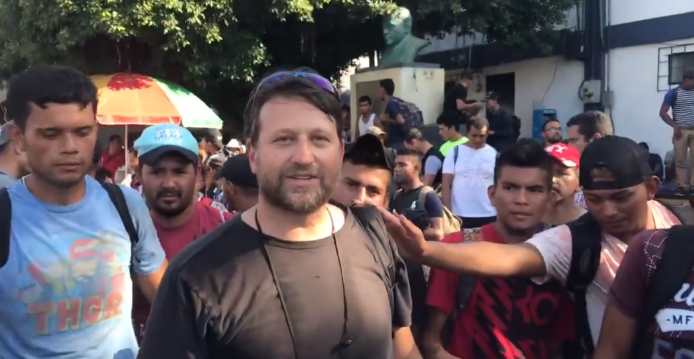
Todd, I know you have visited 25 countries and I suspect it wasn’t during peace times. How do these conditions impact an investigative journalist?
Early in my career, I did work as a freelance combat correspondent. I covered Gulf War I, some of the post-Soviet conflicts, and then a year of warfare in Bosnia and Croatia before peace broke out. I’ve spent lots of time in difficult non-combat zones as well. But truth be told, I don’t really see combat journalism work as much connected with the higher order of investigative journalism work. They’re just too different. War reporting is kind of base, raw and mainly descriptive; investigative journalism is very much more cerebral, analytical, and deductive.
Your goal with writing seems filled with a desire to bring awareness to various public and private groups. Have you succeeded in that intention?
I like to think so. I often do feel “read.” Often, I hear terms that I know I coined! Media talking heads come to me all the time asking me to elaborate on my published pieces. I know lawmakers are reading me. I often feel like my material is very … consumed. And for this I am ever thankful, because after all, we just want to be read and heard, correct?
Yes, Todd, I could not agree more. What do you think has been the most unnerving location and how did that situation influence your reporting?
Recently, I received credible death threats while reporting in a foreign country. The way that influenced my reporting was that I simply fled and stopped reporting in that town! Often, while reporting in Mexico in cartel territory, I try to maintain a low profile while reporting and work in a hurried fashion, using counter-surveillance techniques sometimes along the way. Because this is a little stressful, it can impact the work.
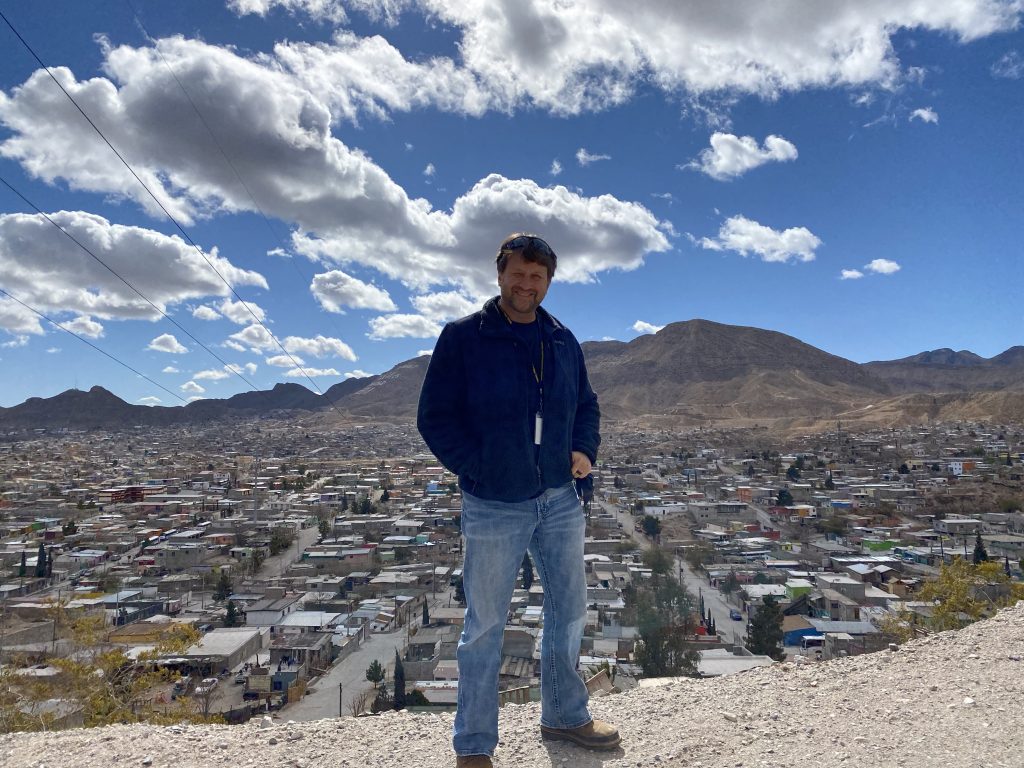
We seem to have increased issues with human smuggling and drug trafficking, especially at our borders. What do you see as the best path toward reducing the problems, based upon what you have seen?
We will always have to live with human and contraband smuggling (and black markets) just like all other unwanted crime forms. The best that societies can do about these problems is to manage them down to a point where their impacts do not threaten a society’s chose way of life. Human smuggling and drug trafficking are probably best met by high-consequence deterrence approaches on the supply side in league with high-consequence demand reduction strategies on the demand side. Drug trafficking happens because Americans love their drugs and will pay for them and use them if the risks of getting caught and severely punished aren’t high enough.
Human smuggling happens because travelers who hire smugglers feel sure the fee money will pay off with a successful illegal entry followed by a long-term stay inside the United States. But fewer will risk paying smuggling money if the chances for a Return on Investment (ROI) are made to be minimal. Aspiring migrants stayed home when Donald Trump reduced the chances of a good ROI, and migrants hired smugglers when Biden increased the chances of good ROI. Hence a very increased volume of human smuggling we see now. Reduce demand, manage the problem down to a kind of acceptable containment. Metaphorically speaking, human societies will always have to live with, say child molesters, but they are managed down by increasing high-consequence risk to all who supply or partake.
In February 2021, you released a non-fictional book America’s Covert Border War: The Untold Story of the Nation’s Battle to Prevent Jihadist Infiltration that has elements of immigration policy, terrorism, and political intelligence. Why was it time for this book?
I noticed public fights broke out between the right and left every time someone (like Trump in late 2018, infamously) said terrorists are crossing the southern border. After all the New York Times, Washington Post and CNN fact check stories, the issues surrounding the claim always seemed to be left unresolved for the American public, and that would be the outcome after the next fight and then the next… Although terrorist infiltration is very much a niche threat among border threats that draw resources and strategy debate, the fact that any fight at all would break out over a niche issue like this, where no terror attack has occurred, is because if greater numbers of people ever come to believe it a real problem, a response would be necessary of a gravity that would threaten a wide variety of stakeholders with border shutdowns and stoppages of illegal migrant flows for low-skill labor markets.
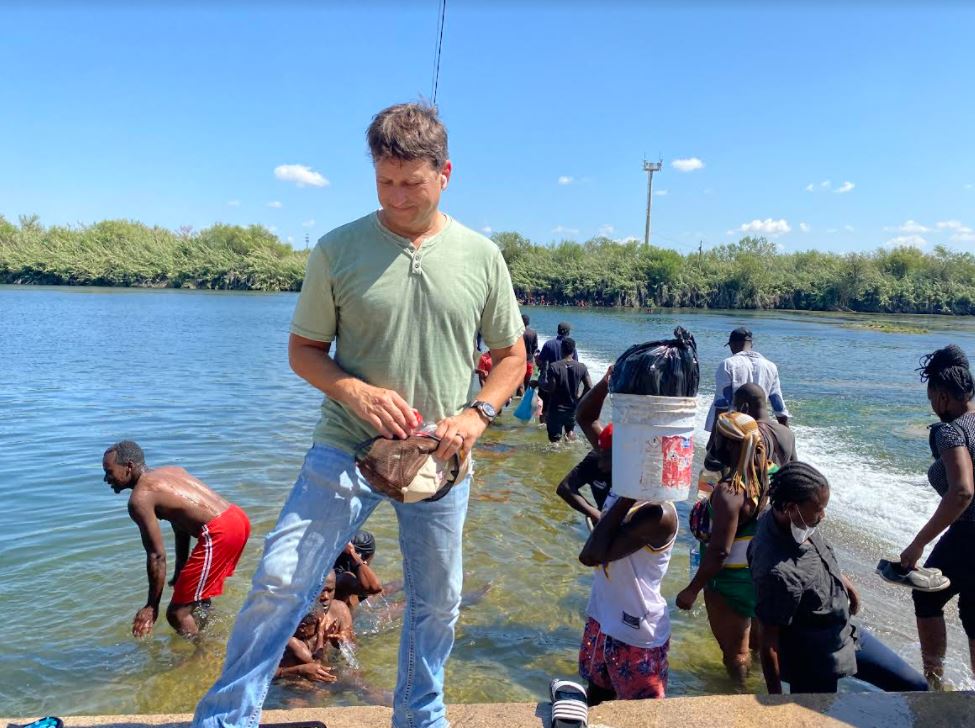
Never mind that an actual attack, which might occur were homeland security to casually dismiss this prospect and do nothing to prepare, would actually close the border and lead to those very same catastrophic outcomes. Better for all involved to just leave things be, especially if no actual attack has even occurred, right? However, given that the mere mention of this in public spurs incredibly intense contention each and every time, I felt the time was ripe to fill the void with the ultimate reference book on the subject.
I felt my book would need to call out the usual hyperbole heard from the political right and the denialism on the left. Find a normal middle ground of discourse and keep to demonstrable facts. I also knew I was the guy to do it because while in government working as an intelligence practitioner, I worked on this very problem set for many years among other government workers who did also. As well, before and after my government service, I reported on this terror travel threat as a journalist and writer. I figured I could put it all together in a coherent, sober way so that the very next time a fight broke out over what was true or false about terrorist border infiltration, my book would come to the rescue.
I know from our prior discussions you received approval from several sources before publishing. Your reviews praise investigative reporting and non-partisan approach, as a few highlights. Is this truly different from other investigative reporters and journalists today?
I do not believe my quaint practices reflect how things work today since I left the journalism business in 2009. I certainly hope so. I’m “classically trained” in journalism ethics and ideals, with both undergraduate (Northern Arizona University) and graduate (University of Missouri School of Journalism) degrees in journalism, plus two decades working for The Dallas Morning News, etc. back in the 90s and early 2000s, when a reporter would be disciplined for having so much as a political sign in the front yard or the wrong sticker on the car bumper. No reporter I knew would even vote in primaries since those cast votes became public in many places. Turns out the whole culture of that was highly fragile, and it’s all smashed now. My feeling is that all the old, cherished boundary lines are totally erased and not even remotely remembered. Partisanship, the use of social media by reporters and editors, and a dramatic economic contraction of the newspaper industry blew up the old culture.
This may be one of those “back in my day…we were great compared to you youngsters now…” But sorry, I’m fully there: partisan inmates have taken over the asylum. Media reporters and their editors don’t even slightly pretend to neutrality anymore and could care less about guarding, with steeled gaze and feet planted firmly, guarding against public perception that they even might slant one way or the other. They all spout personal and political opinions on social media that reflect true political positioning, or as at The New York Times, band together and demand (and achieve) the firings of editors for perceived political offenses.
Many “investigative reporters” are open kimono liberal or conservative and say so out loud all the time, wrecking any chance that their work would find credibility with about half of their potential readers. They live in a bifurcated media landscape where outlets openly skew right or left and which did not exist when I was working. Lots gravitate to openly partisan publications for employment as a comfortable match for their own political orientation.
In a lot of ways, that’s fine and can still bring value because at least the public knows where their work sits on the political continuum. But it’s very different from the old ways. The worst ones, though, are reporters and publications that still pretend to be old-school neutral arbiters of truth when they obviously are not. So yes, “back in my day,” we would all have been fired for what routinely goes on with reporters today. I don’t consider myself to be a working journalist anymore, subject to the old boundaries. People can probably guess at my politics, but that old-school journalism training and culture of the 1980s and 1990s still guides all of my outputs, and I respect those traditions and practices tremendously like I was taught to.
How has your time with the Texas Department of Public Safety influenced the release of this book?
I held a federal security clearance and was entrusted with a lot of knowledge about sensitive law enforcement tactics, techniques and practices at the Texas DPS Intelligence and Counterterrorism Division. I worked closely with the FBI and intelligence community agencies for many years – on the subject matter of America’s Covert Border War. So, writing a book about programs that were fundamentally “covert” and in which I had worked for years became a very tricky challenge for me from the get-go.
My main concern was that I did not breach that any trust placed in me after I left government service, placed me at risk of prosecution for disclosing classified information, hurt investigations or helped the bad guys. These concerns guided me in everything I did. But all of this meant I would have to carefully and thoughtfully thread a needle in and around what could be taken from publicly available materials and what was not public information. And to use non-public information that would be made acceptable to use as collected and processed in the practice of journalism (such as the use of anonymous human sources who shared memories of experience and documents).
To do this, I was constantly having to thread the needle with material I had collected on the subject from when I worked as a newspaper reporter but not that I had obtained from my Texas DPS job as an intelligence practitioner. Oftentimes, the materials resided in both worlds. Did my intelligence knowledge of the subject matter guide me to find what I needed in the public realm? Probably. Was that okay? Yes, probably, I still think. Confusing and tough, but I reached judgements about what I would put in the book based on a “do-no-harm-to-law-enforcement” guidepost.
At one point, I did offer to let Texas DPS pre-review the book as a means to check whether “others” might think I had gone beyond the goal posts I set for myself, even though the agency had no policy for this. The agency appreciatively declined my offer. At another juncture, a named retired FBI agent I interviewed for the book asked that I submit the chapters to the FBI for pre-review, which I happily did. After some months, the bureau’s book-reviewing unit determined that the review was not necessary and returned the chapters with no inputs. In the end, I came out with a book that probably pushed right up against boundaries but did not breach them. These things are more art than science, though.
You mentioned to me the book was entering a second printing, are you pleased with your success and where do you hope it goes to from here?
I never expected to make the New York Times best-seller list. I have not and probably never will. When I was shopping the book, agents and prospective publishers all told me that immigration policy books never sold well unless a famous person wrote them, and I am not famous. But my book has been selling better than anyone expected, often hitting #1 among immigration books and top 5 among terrorism books on Amazon. The first printing sold out. I think the timing of its release was fortuitous too, because it came out just as President Joe Biden took office and triggered a prolonged mass migration event that drew much national media attention. My book kind of caught that wave. I’ll probably never get rich from America’s Covert Border War, but it is getting read and influencing people. A check actually came in the mail recently. All of these developments please me, although I think the nation would be better off without the mass migration crisis.
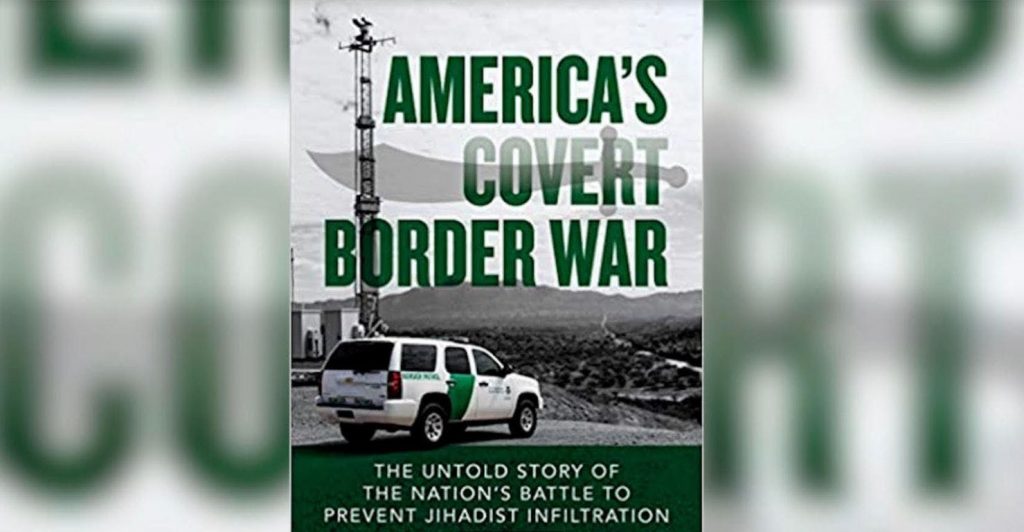
You continue to write papers from your assignments, where can people find these to stay abreast of the ongoing events?
Subscribe to my free newsletter: https://app.convertkit.com/forms/designers/2108336/edit
I have a book website where I list book signings and speeches: www.covertborderwar.com
What do you feel is the most important value you bring to the public in your investigative reporting?
People who read me will pretty quickly find that I value triangulated, verified facts above everything else and sober analysis of these that does not stretch very far beyond what the facts can support. Also, I’m big on showing my sources whenever possible. Everything I do is about shoring up my credibility, which transfers to my work and then back to me when the work holds up over time. So, I like to think I’ve built that for myself, painstakingly over time. I bring credibility to the table that way strong enough to survive the inevitable mistakes. Working for personal credibility was ingrained in me by two decades working as a professional reporter and a third decade as a government intelligence analyst who did much the same kind of work (he said, practically giving up his age). In the end, readers crave credible fact-based reporting and analysis but also a writer’s long experience with their material and expertise.
Most authors I know are also readers. Do you have a favorite author and genre that your often read?
I rarely have time to read fiction anymore, although I used to love science fiction (Asimov and Bradbury) and historical fiction (Michener and L’amour). Hemingway, Jack London, and the travel writer Paul heroux. My reading interests are all over the map. I went through a long phase as a Charles Bukowski fan (I know…I know). His books alone fill most of one of my shelves. But nowadays, it’s mostly all nonfiction, job-related stuff. Nonfiction genres on war, Middle East policy, terrorism, and border security. Right now, I have a stack of unread non-fiction, job-related books to read on my home office desk and in my Kindle. I bought some of these by authors I know and want to support. The Dark Trajectory of Jihad by Brig Barker. The Cancer of Civilization Jihad by Paul Sutliff. I can’t get to them yet. The last full book I read, though, had nothing to do with any of that. It was a book by former The Doors drummer John Densmore on his legal battles with former surviving bandmates. That book sits next to four autobiographies by members of KISS, all of which I read, and one by the former bassist for Deep Purple about his battle with cocaine addiction. So clearly, I have eclectic tastes.
Do you have any desire to write another novel on this subject or are you expanding to other areas of current events?
I’m thinking about a second immigration/border security book about the current border crisis, based on the significant amount of time I’ve spent on both sides of the border covering it. I believe this one is historic for the nation, in volume and scope and impact on the interior. Nothing of this magnitude has ever happened. Someone will need to really assess what happened with this one. But I’m still reporting. The story hasn’t finished, and I haven’t pitched it yet to my publisher. No idea if they’ll take it; as I said, publishers don’t like immigration books.
I also recently found very detailed journals I wrote while covering wars overseas as a shoestring freelance reporter who did it all hitchhiking with a backpack, tent, and sleeping bag that often were put to use. Reading through these, I see both human interest in that young guy doing things that dramatic, scary way with no support and far from home. I have all of the stories I published of the wars I was in. But I also see potential value to historians who are interested in some of those. If a publisher doesn’t want a book about such time-worn events from deep yesteryear, I may just find a way to package those journals and self-publish them, at least just to show my kids the crazy foreign correspondence stuff their dad used to do.
Can you share additional details of your writing process and maybe tips other authors might consider? Things like beta readers, reviewers, challenges.
Get a strategic editor on board. Not a line editor type but one who knows how to frame and organize your story in a way that is consumable and saleable. Don’t start writing until all the reporting is collected, either, and don’t be afraid to cut off the reporting. Just. Cut. It. Off. And write what you have. Reporting often has no end but you can always tell readers what you don’t have and couldn’t get, and they’re fine with that.
You are invited to speak to a large group about your book. What demographics would you prefer in the audience and why?
The conservative political hemisphere turned out to be natural habitat for America’s Covert Border War. People on the right buy my book, invite me to speak, promote it, and interview me about it in their media.
By contrast, the other half of the country has shown approximately zero interest in America’s Covert Border War, not even enough to deign to criticize it. But my book failed if it didn’t inform a quarter from which half of the contention about my subject emanates. Why write the ultimate reference guide settling an ongoing national argument when one of the sides doing the arguing refuses to even look at it? So, I would cherish any opportunity to explain my book to that audience, political liberals, and to subject the book to debate and challenge.
I’m not going to hold my breath, though.
Do you use social media to convey your messaging to followers?
Yes, very much, because when in Rome, do as the Romans do. Twitter @BensmanTodd and GETTR @tbensman
I also use LinkedIn.
When you first entered undergraduate school did you want to be a journalist?
Initially, I thought I might want to be a filmmaker, but two things happened. I took a journalism class that allowed students to publish stories in the school paper and felt the thrill. Then, I saw the (1984) film, The Killing Fields, about a foreign correspondent covering the Cambodian genocide. After seeing that film six times and with a couple of bylines in the student paper, I changed my major to journalism and never looked back.
What are the top 3 items on your bucket list?
Ride the full length of the Siberian Railroad like Paul Theroux did.
Live for a long while in a cheap paradise abroad somewhere.
Have a boat big enough to live in if I want.
Where can folks find you and follow you.
Website: www.toddbensman.com and www.covertborderwar.com
You might also like to listen to our interview a few weeks ago from the Indie Beacon Show.

